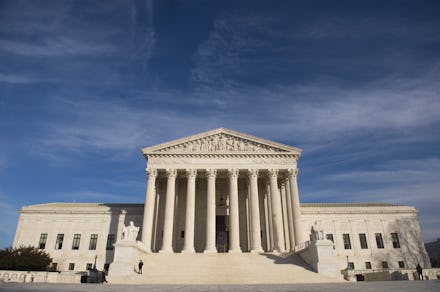“Dark money” political donors must now be disclosed, Supreme Court orders

Organizations will now be required to disclose their political donors ahead of the November midterm elections, as a Supreme Court ruling issued a blow to “dark money” in politics.
The Supreme Court denied an application for a stay on Tuesday in a case that concerned the disclosure of political donors by “not-political committees” — organizations that make expenditures in support of or against political candidates but have “major purposes” outside of political advocacy.
The ruling upholds a previous district court ruling, which struck down the regulation allowing organizations to shield their donors. The Supreme Court’s decision allows the ruling to go into effect immediately; conservative non-political committee Crossroads GPS, the defendant in the case, had requested that the court freeze the ruling so it would go into effect after the November election.
Under the Federal Elections Commission regulation that’s now been struck down, not-political committees were required to identify donors who contributed at least $200 for the purpose of influencing an election, but only when their contribution was expressly to be used for a specific reported expenditure. Any general political donations did not need to be disclosed. The U.S. District Court for the District of Columbia ruled in August that the regulation was “invalid,” and failed to implement other disclosure requirements, which do require not-political committees to report donations made for political purposes.
“Moving forward, these groups will need to disclose to the public any donor that gave money for the purpose of influencing a federal election, regardless of whether they want to sponsor a particular race or specific communication,” elections law expert Matthew Sanderson told the Washington Post. “Some groups will not need to adjust their approach to raising funds, but this will be a significant change for others.”
These undisclosed political funds have become known as “dark money,” which has been used to fund political committees such as super PACs, in addition to not-political organizations. The nondisclosure regulations allowed money to be transferred to these political action committees without being disclosed, as not-political committees can act as “pass through entities” simply routing money to the super PACs.
This dark money has become a significant funding source for elections. According to the Center for Responsive Politics, nondisclosing groups spent $312.5 million during the 2012 election cycle, $178.4 million during the 2016 election cycle and $65.3 million during the 2018 cycle thus far. That money is primarily being spent by conservative-leaning groups, who contributed $269.2 million in 2012, $141.9 million in 2016 and $37.1 million in 2018.
While Politico reported Tuesday’s ruling has “set off a scramble” among political operatives, advocates for transparency and the stricter regulation of election funding celebrated the ruling.
“This is a great day for transparency and democracy,” Noah Bookbinder, executive director of Citizens for Responsibility and Ethics in Washington, which brought the case, said in a statement. “We’re about to know a lot more about who is funding our elections.”